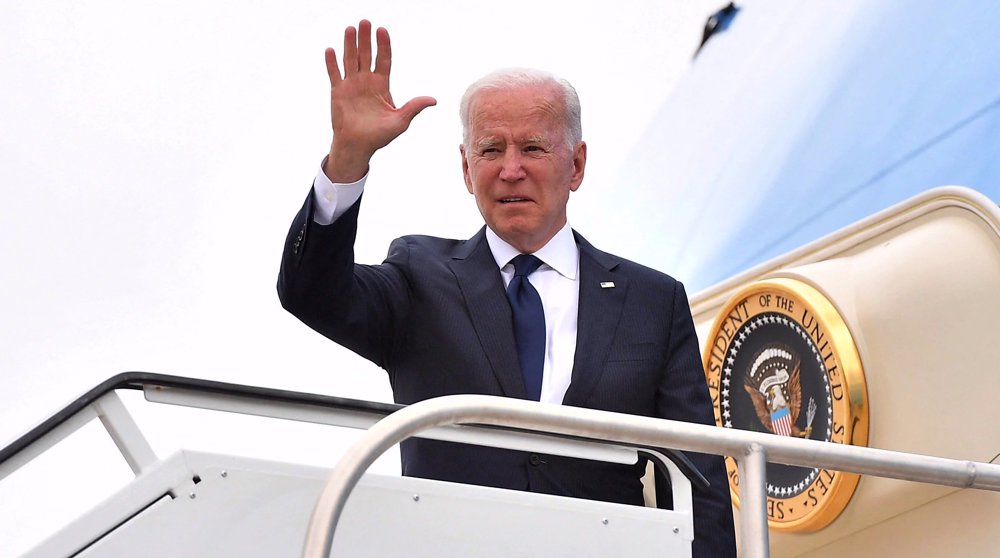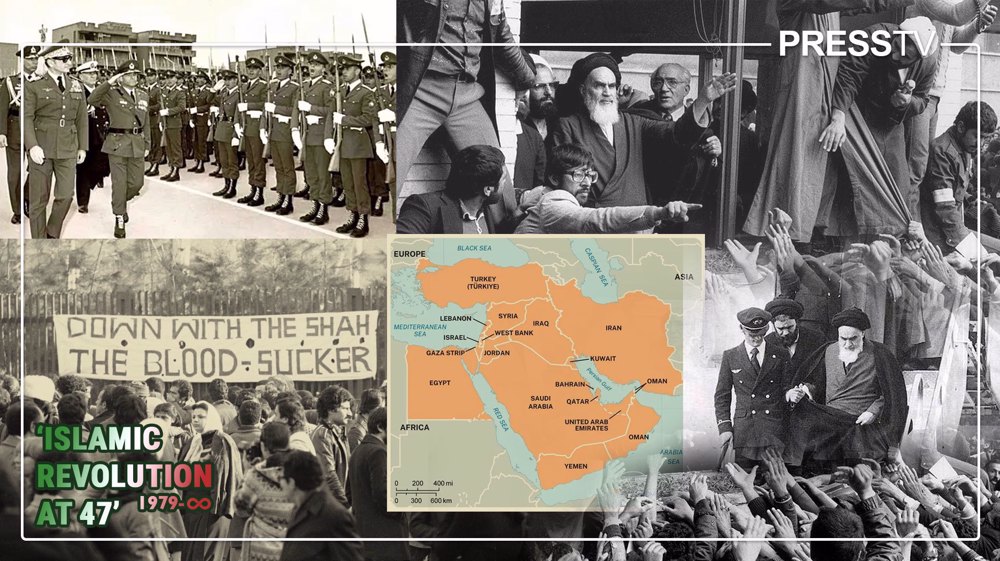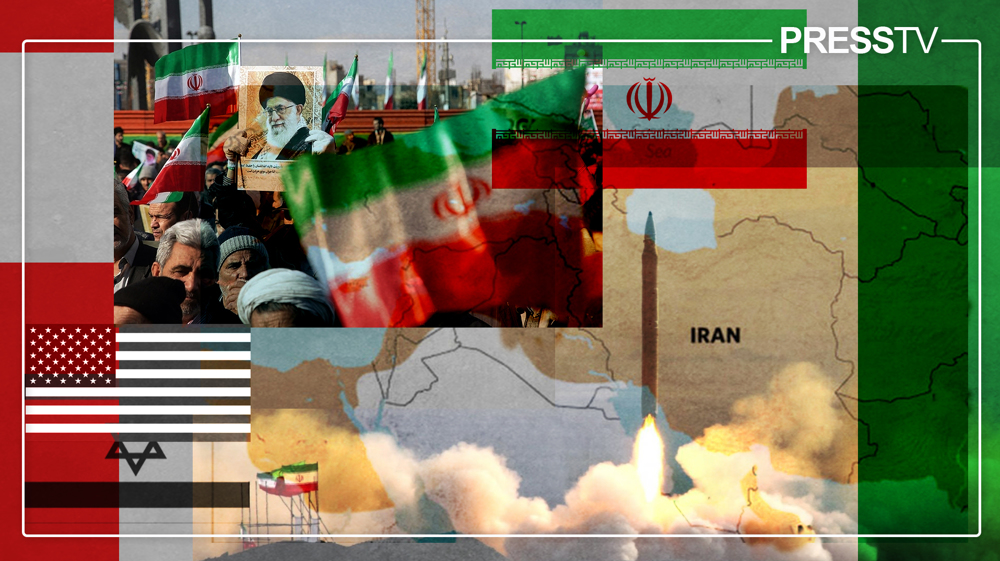Biden’s regional visit and a dream that won’t come true
By Abolfazl Bazargan
A lot has been written in recent months about the importance of US President Joe Biden’s visit to the region. On Saturday, Biden published an article in the Washington Post, titled “Why I’m going to Saudi Arabia,” in which there were some remarkable points. Considering the domestic conditions of the United States and the new state of the international order, we will delve into the importance of this trip as well as the opportunities and challenges it creates for the Islamic Republic of Iran:
Return of realpolitik to White House under Biden’s rule
Biden’s visit to Saudi Arabia takes place as Biden had repeatedly said in his election campaign that he would make Saudi Arabia “pay the price” of the things it has done, referring to the murder of journalist Khashoggi on the order of Saudi Crown Prince Mohammed bin Salman and the gross violation of human rights by Saudi Arabia in the Yemen war. In recent years, there has been a lot of pressure from domestic and international human rights groups on the US government to change its approach toward Saudi Arabia. Finally, it was Biden who promised to prioritize human rights issues on his campaign trail.
Therefore, since the day when the possibility of Biden’s trip to Saudi Arabia was raised, many protested the US president’s decision, believing that Biden is faced with a tough decision given that the Biden administration commands weak support in Congress – even among the Democrats – and the trip may prove to be detrimental to his chances in the upcoming elections. However, we finally saw that he decided to make the trip anyway.
The trip has a clear message for theorists of international relations and the debate between idealism and realism in the policies of the White House – that no matter what ideals the US pursues in supporting human rights and spreading democracy around the world, in the end, it will extend the hand of friendship to the most flagrant violator of human rights and the most undemocratic country in the world for the sake of its own interests.
Therefore, the article can be seen as a justification for the public opinion in the US, suggesting that Biden is attempting to create a new domestic discourse, distract public attention from issues related to human rights and democracy, and show that there are more important issues for the national interests and national security of the United States.
Ukraine crisis; international order shift; and new regional game
The Ukrainian crisis and the ensuing sanctions on Russia’s energy have raised energy prices across the globe, and it is no secret that they have caused a new crisis for Europe and to some extent the US. But what was not predictable was that Saudi Arabia, as a US ally and the biggest oil exporter in the world, has not supported America’s oil policies against Russia after the beginning of the crisis.
The fact is that issues such as the United States’ abrupt withdrawal from Afghanistan and the gradual pullout of its forces from the region, as well as the inefficiency of the US support for Ukraine to prevent Russia from attacking that country, have imposed a new logic on the countries of the region, including the governments that have for decades tied their security and interests to America’s presence in the region, namely that they need to try ways other than dependence on America to secure their interests and security.
One of the most obvious signs of this new logic after the Ukraine crisis may have shown itself in the defiance of regional countries with the sanctions imposed by the US and Europe against Russia. The US and Europe in particular held many talks with Saudi Arabia, the UAE, and other oil-rich countries in the region to increase their exports so that they can both compensate for the energy shortages in Europe and control the prices of the global energy market. However, Saudi Arabia defied this decision to a very large extent and preferred to maintain its relations with Russia in OPEC+ and reap greater benefits by pushing up oil prices. Additionally, with the US withdrawal, Russia will become a more important actor in the region, and Saudi Arabia considers cooperation with Russia in line with fulfilling its national interests in the future. The presence of Russian Foreign Minister Sergei Lavrov in the recent meeting of the Persian Gulf Cooperation Council (GCC) was in line with this trend. In this respect, Biden’s trip to Saudi Arabia is in line with the importance of giving concessions to the Arab country in order to convince it to increase its oil exports and control global energy prices. Perhaps if Saudi Arabia was still obeying US policies, this trip would not have been as important as it is now.
Expansion of China’s influence in the region
Keeping up with the topic of the transition in the international order and the withdrawal of US forces from the region, China, as the second international superpower and a candidate to become the next hegemon in the future world order, is coming to the region in an unhurried pace but it is gaining a strong foothold and is now gradually stepping into areas where the US withdrawal has left a vacuum. Moreover, coming across a new economic superpower, the regional countries have realized that cooperating with it will serve their national interests and are not mindful of the fact that the country is the greatest rival of their traditional ally, the United States. This means that the US's traditional and key allies in the region, from Saudi Arabia, the United Arab Emirates, and Qatar to Turkey – a NATO member state – have established very extensive cooperation (even more than the Islamic Republic of Iran) with China, which is contrary to the interests of the United States. Perhaps, the most important political economy and security cooperation in this regard can be Saudi Arabia’s security cooperation with China for the construction of ballistic missiles, the construction of Chinese military bases in the United Arab Emirates and the Persian Gulf, and maybe above all, the agreement between Saudi Arabia and China to accept the latter’s currency, yuan, for oil purchases, which appears to pose a serious threat to the dominance of the dollar in the world currency system. Therefore, China’s growth is currently perceived as the most significant threat to the US and it seeks to contain this country. Losing the West Asian region to China does not work in the US’s favor at all. Therefore, the importance of Biden’s visit to Saudi Arabia can be discussed in light of coordinating its policies with the Arab country to prevent China from gaining more benefits in the region.
New regional order in favor of Iran after US withdrawal
The United States has had a serious and extensive military presence in the region for 20 years since it invaded Afghanistan and Iraq after September 11, which continued to contain Iran for the majority of these years. Over the years, the United States has not failed to take any opportunities to change Iran's conduct and defeat it, from the “maximum pressure campaign” of sanctions to military presence on the western, eastern, northern, and southern borders, to its presence in the Persian Gulf, to holding military exercises on Iran’s borders to uttering the threats of “the military option is on the table” for several times, to the assassination of the commander of the Quds Force of Iran’s Islamic Revolution Guards Corps (IRGC), martyr General Qassem Soleimani, etc. But now, after 20 years, while the US itself is now withdrawing from the region, not only the Islamic Republic of Iran has continued to remain in the region with unchanged foreign policies, but it has also won all the proxy wars in the region along with the axis of resistance against the United States and its regional allies, and in the era of unipolar order, has challenged the US hegemony in the region and with regional strategic depth has imposed its desired order in half of the region from Afghanistan to Iraq, Syria, Lebanon, and Yemen. The Islamic Republic has developed its missile power more than ever and has recently emerged as one of the most important domestically-developed drone powers in the region. Currently, with regard to the current condition, for the regional governments who saw their security dependent on the presence of the United States in the region, the withdrawal of the United States has created a sense of fear and a security vacuum, which forced them to adopt new policies, including self-help and forming new alliances and coalitions. In this respect, all the activities of the countries in the region can be explained, from communicating with China and Russia to the Arabs approaching Turkey and the Zionist regime.
But the other side of this coin is that due to the history of survival, power, and deterrence of the Islamic Republic of Iran and the very important and sensitive geopolitical and geostrategic position of Iran in the region, other governments in the region while competing with the Islamic Republic, by making cost-benefit calculations, prefer not to engage in war and conflict with Iran, but rather de-escalate the situation and cooperate with this country. This can be manifested in the new developments in Afghanistan and the coming to power of the Taliban, which has always been a rival for Iran, and now prefers to have good relations with Tehran, and so does Pakistan and Turkmenistan, which has had strained relations for years with Tehran and now with the current administration’s policy change, the ties between the two countries are improving tangibly, and the Republic of Azerbaijan and Turkey, who are in fierce competition with Iran in the Nagorno-Karabakh crisis, but now want to de-escalate the condition and cooperate with Tehran, and the United Arab Emirates, whose top national security advisor travels to Tehran and meets with Admiral Ali Shamkhani and requests to expand relations with Tehran despite the normalization of relations with the Zionist regime, and Qatar and Oman, which have extensive relations with Tehran, to Saudi Arabia, which at the height of competition, after eight years of failure in the Yemen war and the departure of the US patriots from their country, wants to de-escalate the tension with Tehran in Baghdad negotiations. All these developments, in addition to the recent victory of Bashar al-Assad in the Syrian elections and the normalization of the regional Arab countries with Assad after 10 years of war, are all indicating that the position of the Islamic Republic of Iran in the region is improving. In the meanwhile, this turn of the order in the region is not in the US favor, the US who tried to shift the balance in favor of Israel by creating the Abraham Accord, now if the Arabs and Iran establish controlled relations with each other, the balance will be tilted in favor of the Islamic Republic of Iran and will be a detriment to the Zionist regime in the region, which is in conflict with the usual US policy of maintaining the superiority and security of this regime in the region. Therefore, Biden's trip to Saudi Arabia is of particular importance to normalize relations with Israel and shift the balance of the region towards it.
Now the US is seeking "offshore balancing" for West Asia, meaning that the United States after 20 years of direct military presence in the region which involved enormous expenses (according to Trump, more than eight thousand billion dollars), and with more serious threats to its foreign policy, i.e. containment of Russia and China, it must leave the regulation of the region to its allies in the region to secure its interests, the most important of which is the Zionist regime. But this regime will be definitely not able to accomplish this important task all by itself, so by visiting Saudi Arabia and normalizing relations between these two countries, Biden wants to make sure that he can count on Saudi Arabia as his ally once again.
US lacks suitable alternative to failure of talks with Iran
Continuing the debate on the transition of the international order, the Ukraine crisis, the growth of China, the gradual withdrawal of US forces from the region and Iran’s increase of deterrence power, its influence and elevated position in the region, and the development of Iran's nuclear capabilities, technology, and knowledge, the United States of America can no longer tell Iran it is "either a war or a deal". The US can no longer impose its demands on Iran in the negotiations by threatening to wage a war on the country (the policy it was pursuing in the 2015 Joint Comprehensive Plan of Action (JCPOA) negotiations). In yesterday's Washington Post article, Biden stated that Trump withdrew from the JCPOA without having a favorable alternative policy toward Iran. Also, Biden said that his government, by continuing the negotiations, will continue the sanctions against Iran until Iran agrees to return to the deal (of course, a deal that serves the national interests of the US). Biden’s comments on Iran which were given wide media coverage mean that the United States really does not have a good alternative for the deal with Iran and prefers to continue the negotiations to avoid failure while continuing to exert pressure. Therefore, perhaps the only option for the containment of Iran in the event of failure of negotiations to revive the JCPOA is the same remote offshore balancing policy that was proposed earlier, a military alliance (air-sea-defense-radar) between the Zionist regime and some Arab governments in the region. From this point of view, by visiting Saudi Arabia, Biden seeks to work out a plan B for Iran and the possibility of failure of negotiations to revive the JCPOA.
Iran’s strategy towards impacts of Biden’s trip to region: Network order
If the Islamic Republic of Iran, in the arena of foreign policy, bases its efforts, to further its national interest, on the new international order, i.e. the network order, the order is based on the behavioral pattern of cooperation among competitors (Co-operation: competition + cooperation) it can diminish or even neutralize most of the conspiracies of the US and the Zionist regime at a minimum cost. Currently, Saudi Arabia, as a key government among the Arab countries that are members of the Persian Gulf Cooperation Council, is in a special position. On the one hand, it has been unsuccessful in the war in Yemen for eight years, and the power of Yemen's Ansarullah has now reached such a level that they are targeting positions in Saudi Arabia and even Aramco. On the other hand, given its approach towards the US withdrawal from Afghanistan and the Ukraine crisis, it may not be certain about the unwavering support from the United States, and, furthermore, in cooperation with the new international powers, namely China and Russia, it is forced to take a more moderate position towards their interests in the region, especially in Iran, and more specifically towards China because China, unlike the United States, wants improved relations between Iran and Saudi Arabia which enables it to more assuredly safeguard its national interests in the field of energy and transit in the Persian Gulf. And finally, despite the fact that Saudi Arabia regards the normalization of relations with the Zionist regime, in line with protecting its national interests, it is well aware that this relationship would seriously harm the image of the leadership of Saudi Arabia as the big brother of the Sunni Muslims of the world and the Palestinian cause. Therefore, despite the normalization of relations with the Zionist regime, Saudi Arabia can never become its strategic ally. Taking it all into consideration, we can see that the Islamic Republic of Iran is now in a much better position than it was in the past ten years which allows it to enter into dialogue and de-escalation of tensions with Saudi Arabia from a stronger stance, a process that has been followed in five rounds of negotiations in Baghdad and the sixth round will be held soon. The important point here is that despite all the competition that the Islamic Republic of Iran has with Saudi Arabia in various ideological, economic, oil, political, military, and regional fields, at the same time, in a cost-benefit calculation to ensure national interests, de-escalations with Saudi Arabia can prevent the Arab country from getting closer to the Zionist regime and diminish or neutralize most of the security threats in the Persian Gulf. Therefore, speeding up the negotiations in Baghdad and reopening the embassies in Tehran and Riyadh may be among the most effective measures that can be taken by Iran in response to Biden's visit to the region.
Conclusion
By going through what has been discussed so far, it can be concluded that Biden's trip to the region is not a show of power but is meant to compensate for the failure in various areas after leaving the region and the transition in the international order. From this point of view, in contrast to media campaigns about Iran's entrapment and isolation in the region, compared to 10 or 5 years ago, based on the criteria of power and bargaining tools in international relations, Iran has a much better position, and by taking a more active and conscious policy, while increasing deterrence and applying the behavioral logic of network order in the region, can look after its national interests.
Abolfazl Bazargan has a PhD in international relations and is a researcher in international security.
(This article was written originally in Persian and translated to English by Press TV staff. The views expressed in this piece do not necessarily reflect those of Press TV.)
VIDEO | Trump's Gaza 'peace plan' dismissed as 'one-sided and unworkable'
Sheikh Qassem: Hezbollah foiled objectives of enemy’s aggression
VIDEO | Transatlantic rift at Munich Security Conference
‘Textbook definition of terrorism’: Tehran denounces Pelosi’s call on US to exact ‘pain’ on Iranians
VIDEO | 39th AU summit opens in Addis Ababa with focus on water security, peace, and development
VIDEO | Iran: The stronghold Washington lost
Anti-Iran ‘Munich circus’ shows Europe has lost geopolitical weight: Araghchi
Swiss to act as venue of next round of Iran-US talks: Report










 This makes it easy to access the Press TV website
This makes it easy to access the Press TV website